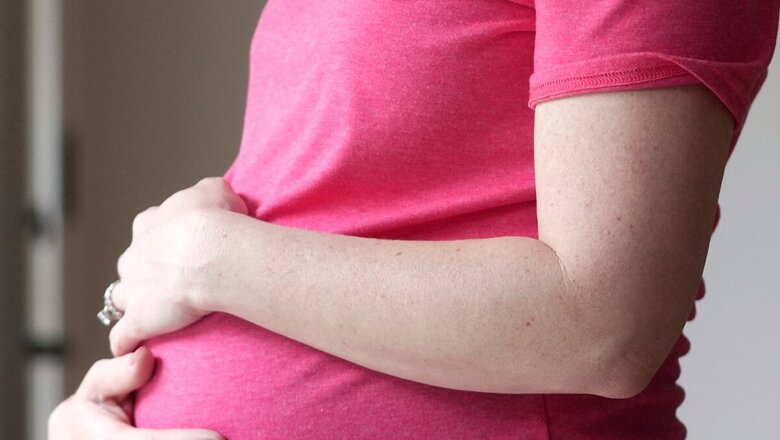
views
It is a well-known fact that air pollution causes serious complications in pregnant women and newborns. There are numerous global studies that have showcased hormonal changes in women linked to pollution. But now doctors in Delhi-NCR have raised serious concerns regarding the effects of toxic air on pregnant women.
There is an increase in the number of miscarriages being reported in Delhi-NCR due to pollution, they say.
“If I was seeing 10 miscarriages in a month, now I am seeing 20. Not only miscarriages, but a number of newborns have low birth weight and there is an alarming increase in this. Women are healthy throughout the pregnancy but it seems the child is not growing; blood flow stops to the baby in most cases. Baby starts compensating. This is happening more than ever," says Dr Jayasree Sundar, senior gynaecologist, Madhukar Rainbow Children’s Hospital.
Another gynaecologist, Dr Vaishali Sharma in Delhi, is also seeing similar trends. “We get a higher percentage of women getting spotting during pregnancy at this point. In the last 10 days, I have had cases of 4-5 pregnant women who had completely asymptomatic pregnancies but started having bleeding and spotting without any reason. Air pollution is one of the major factors for such miscarriages. In case women don’t take care and venture out in this pollution, they get such spotting which leads to miscarriage," she says.
Apart from miscarriages, doctors have also been seeing numerous cases of infertility, not just in women but also in men.
“Pollution is linked to infertility in men and women. A rise in air pollution is giving rise to more toxins. These toxins go inside ovaries and testicles, which further has an impact on egg formation and sperm. Some chemicals like benzene, which is present in tobacco, are also present in vehicular and industrial emissions, when found in females, block the formation of eggs and when found in men impact the quality of sperm. The success rate in IVF for such cases is also very low," says Dr Vaishali Sharma, gynaecologist.
According to the doctors, if there is no long-term solution to the pollution problem in Delhi-NCR, it will have a longer implication on newborns. There are a number of changes already being observed in newborns, like autism, low birth weight, and lung infections, which could have serious implications as the children grow.
“We are attributing many factors to autism in children and one of them is intranasal hypoxia. The PM2.5 level is so high, it causes mitochondrial alteration because of the change in environment. Every other pregnant woman is complaining of a cold or cough. Naturally, their appetite goes down, which has long-term implications on babies," says Dr Jayasree. “We have a lot of working women who are pregnant, and when they are travelling, they take in these particles. A number of women are reporting hormonal and metabolic imbalances. We are seeing problems in Delhi that we have not seen before."
Though newborns and pregnant women are the among most vulnerable when it comes to pollution, doctors say the preventive measures are similar for everyone.


















Comments
0 comment